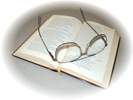
The Gift of Sight

important advice on how best to look after your eyes
What better subject to include in Focus than some important advice on eyesight? One of life's precious gifts, it is all-too often taken for granted, especially by the younger members of society. Those of us in our senior years can also be complacent, accepting deteriorating vision simply as part of growing old. That may be so to a degree, but many of the inconveniences we have chosen to put up with can be treated, while some, if left unattended, may result in major complications, or permanent loss of sight. A visit to a qualified professional can prevent this happening.
Gary Crerie; B. Optom (Hons) NSW, FACBO, COVD, FAICD, GCBA is a respected practising Optometrist in Perth, Australia, and has kindly agreed to write this article, passing on some of his extensive knowledge and experience. He has been looking after us for years and has not only ensured that we are wearing the correct lenses in our spectacles, but has also offered invaluable suggestions on the best ways to prevent problems and keep our eyes healthy.
Here are a few of the questions he is frequently asked, plus his answers. Following these are some very important messages that all of us should seriously consider.
FREQUENTLY ASKED QUESTIONS
Q: How often should I be tested?
A: Every two years if there are no urgent, or new symptoms. More frequently if you wear contact lenses or have an eye or general health condition that requires monitoring (Diabetes; some people with high blood pressure; glaucoma; cataracts; macular degeneration.
Q: I can see great… Why do I need an eye test?
A: There are many sight- (and some life-) threatening diseases that are symptomless until it is too late to treat them. A regular eye examination should identify many of these conditions when they are treatable.
Q: When should I have my child's eyes tested?
A: 6 months, 2 years and 4-5 years of age as a routine, and before that if you suspect some problem. There are signs or symptoms (eg closing or covering an eye to see; head-turn or tilt; light sensitivity, pain or constant/regular headaches; avoiding tasks); or you have a family history of eye problems.
Q: What do you check for in an eye test?
A: Sight, binocular vision, colour vision, eye conditions (like strabismus, cataracts, glaucoma, macular degeneration, pterygia, dry eyes, retinal and vitreous degeneration/detachment, haemorrhages), plus eye signs of general conditions (like diabetes, high blood pressure, multiple sclerosis, cholesterol.
Click this ![]() image to view or print complete article.
image to view or print complete article.
Home Display Money Health Focus HandyHints Popcorn Recipes eBooks About Contact
copyright © 2011-2015 All Rights Reserved